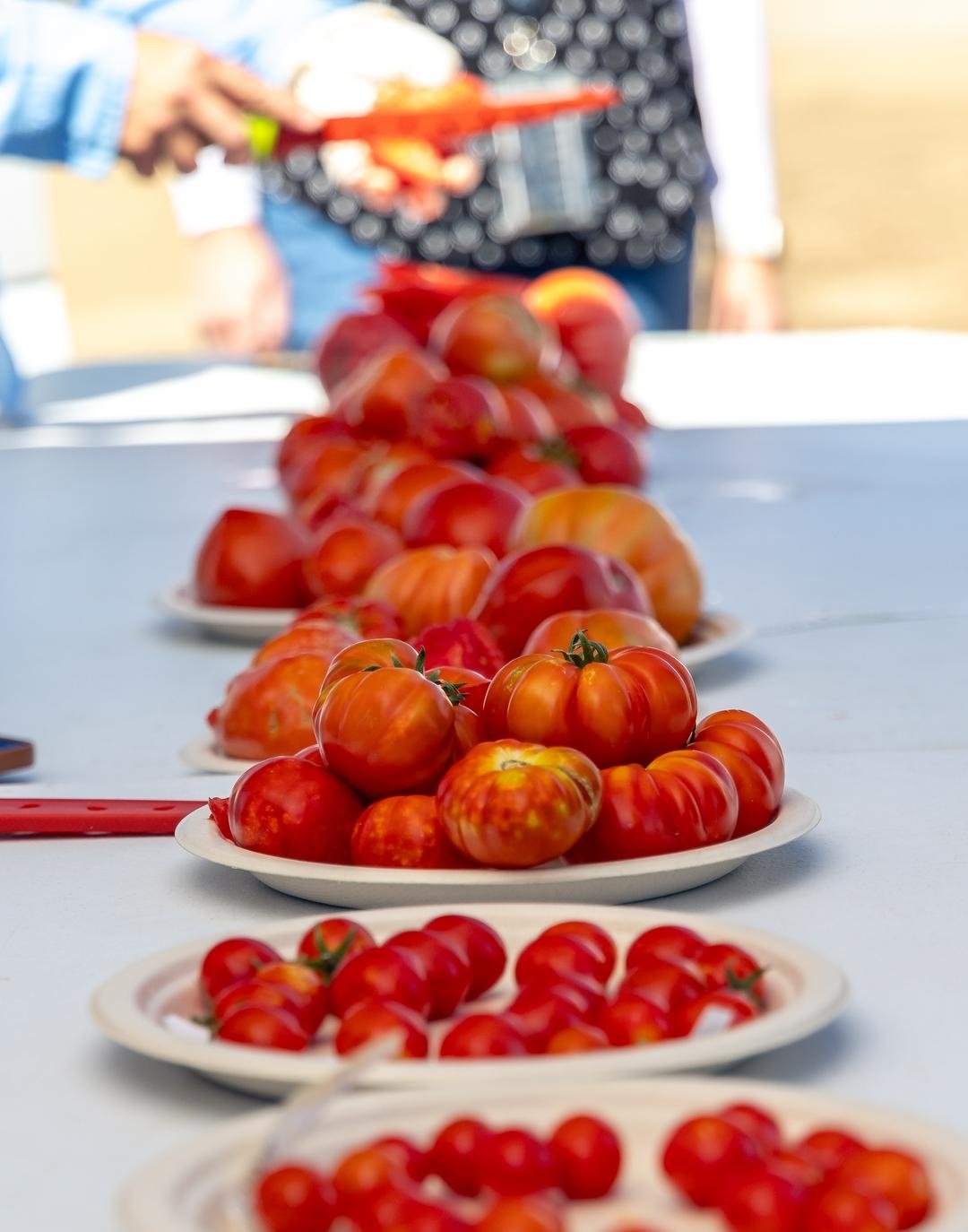Bayer’s Plant Breeding Program Just Might Save the World
High-tech farming: Scientists at Bayer Vegetable Seed use strategic plant breeding to foster a more robust, sustainable agricultural sector.
Plant breeding has been practiced for thousands of years. Humans use plant breeding to create new specialty crops with more desirable traits. In the beginning, plant breeding was probably used largely to propagate heartier varieties. Today, things are a little more high-tech. A good example is Bayer Vegetable Seed, where scientists cross-breed plants to create disease-resistant, high-yield crops that are adapted to climate change and require fewer chemical inputs.
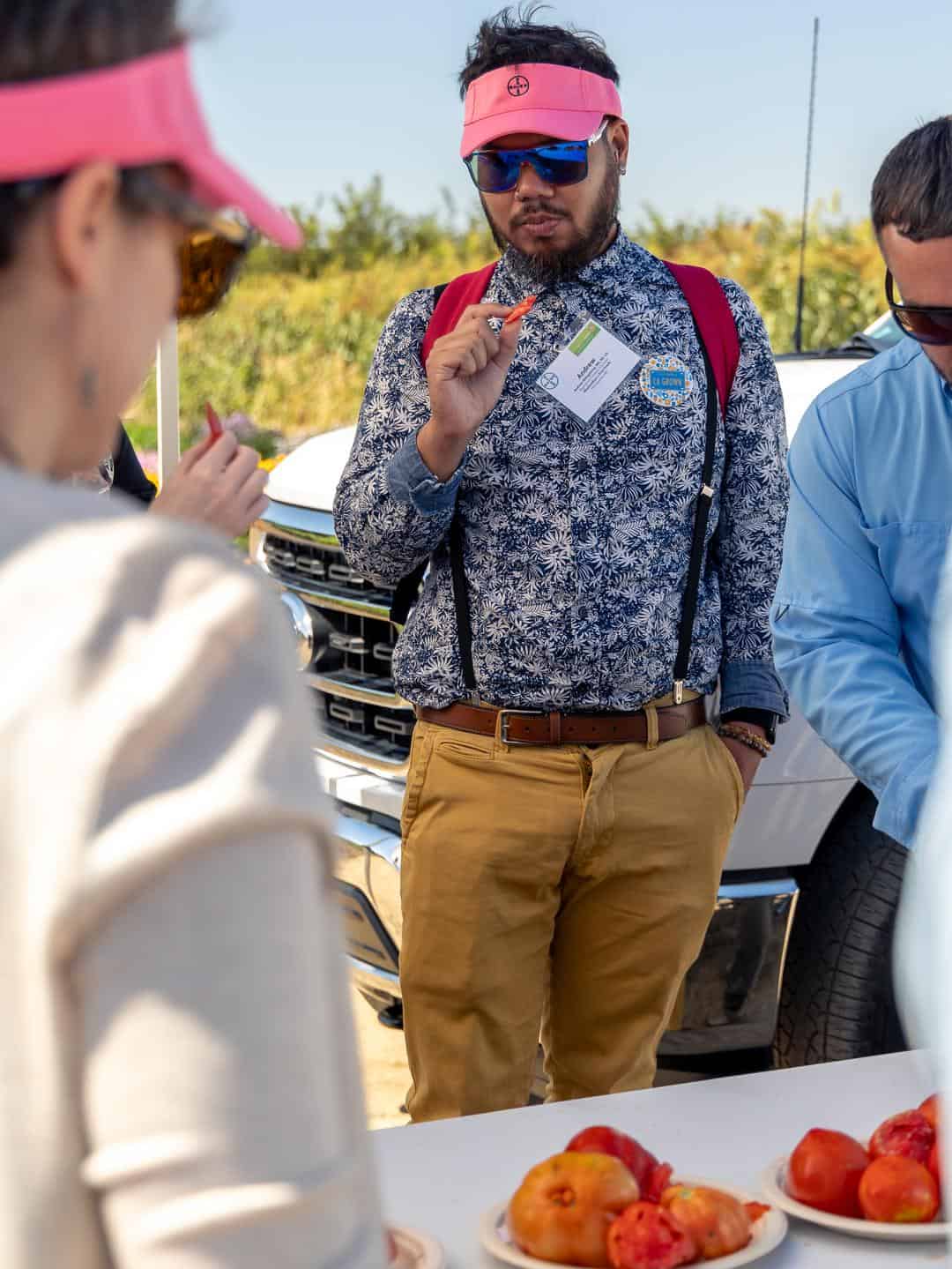
So, what exactly does that mean, in layperson’s terms? Chad Jorgensen, a Product Development Breeder at Bayer, explains, “We make seed, grow plants, and select the best plants that will solve the issues facing our customers.” Vivek Sharma, Global Processing Tomato Line Development Breeder, chimes in with a slightly more technical explanation, “The focus is on developing seeds that offer higher yields, disease resistance, and better adaptability to environmental challenges, alongside qualities appealing to consumers, such as taste and nutritional value. This involves advanced breeding techniques, genetic research, and sustainability practices to ensure the seeds meet current and future agricultural needs.”
Helping farmers to feed the nation…and the world
California feeds not only the nation but also the world. Bayer aims to help by ensuring farmers can grow more crops while using fewer resources. Choosing disease-resistant crops has always been a priority for farmers. But the folks at Bayer know that environmental adaptability is becoming more and more important as farmers navigate changing microclimates. Vivek adds, “Ultimately, this [science] leads to increased income for farmers, promotes agricultural biodiversity, and contributes to food security.” After all, having a stable global food supply is kind of a big deal, right?
Collaboration is key
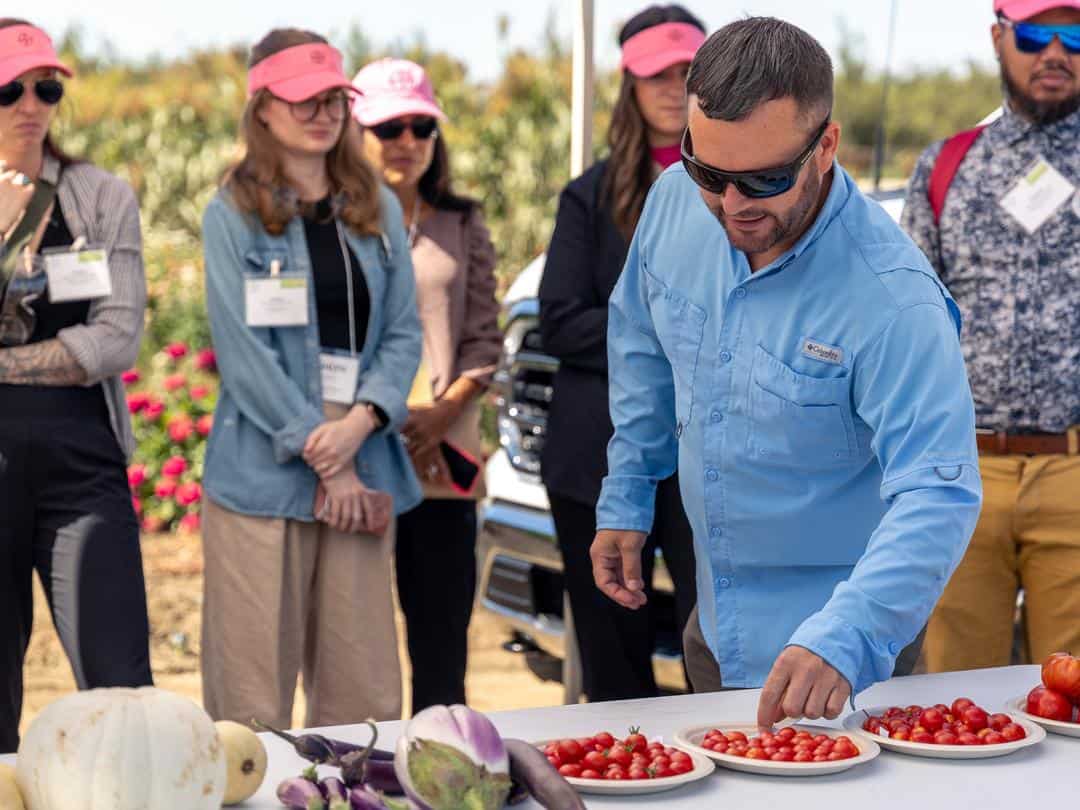
Collaboration is at the heart of agricultural innovation. Researchers at Bayer work closely with farmers and commodity boards. This allows farmers to share some of the challenges they face in the field. Collaborating helps the scientists at Bayer to accurately assess specific needs and identify desirable traits. This partnership ensures that new varieties are not just innovative but also relevant.
Some of the most common traits Bayer Seed breeds for include:
Yield Improvement: Improved yields allow farmers to grow more food per acre, increasing profitability and meeting the growing global food demand.
Disease and Pest Resistance: Disease and pest-resistant varieties require less inputs (like pesticides), allowing farmers to save money AND the environment.
Climate Resilience: Drought tolerance, heat resistance, and flood tolerance are increasingly important as farmers navigate a changing climate and unexpected weather conditions.
Shelf Life: Reducing food waste and keeping produce at peak ripeness for an extended amount of time? Yes, please.
Taste and Aesthetics: Breeding for flavor, texture, and appearance creates “trendier” varieties that customers crave (and are willing to pay a premium for).
Efficient Resource Use: California farmers champion sustainable agriculture. The ability to conserve our natural resources is always a priority.
Vivek comments, “By focusing on these traits, Bayer aims to develop vegetable varieties that are not only beneficial for farmers in terms of yield and ease of cultivation but also meet environmental sustainability goals and consumer demands for healthy, tasty, and high-quality produce.” Sounds like a win-win scenario, don’t you think?
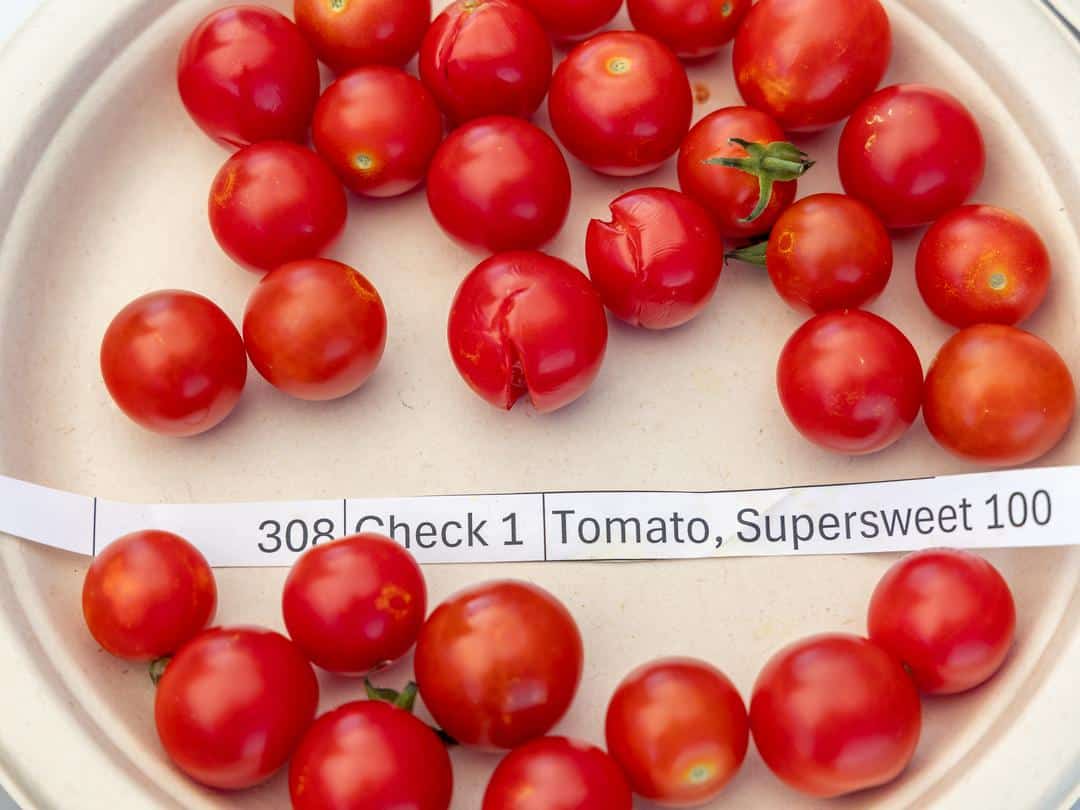
Teamwork makes the dream work
Remember how we mentioned that plant breeding isn’t exactly a “new” science? Scientists still lean on some of the same basic techniques like cross-pollination.
However, today’s technological advancements allow for much more precise, predictable outcomes that help farmers. Vivek states, “Bayer develops new vegetable crop varieties through a streamlined process that involves identifying desirable traits, conducting genetic research, and employing advanced breeding techniques, including traditional cross-pollination, marker-assisted selection, and, occasionally, genetic modification. Successful varieties then move to large-scale seed production and distribution. Throughout this cycle, Bayer supports farmers with technical advice and gathers feedback to inform future breeding projects, aiming to improve yield, resilience, and nutritional quality of crops while addressing environmental sustainability.”
The folks at Bayer explain that there are two primary methods for developing new plant varieties: traditional crossbreeding and genetic modification – which differ significantly in process and outcome. In Bayer’s vegetable portfolio, only a few hybrids are genetically modified – squash and sweet corn – and genetically modified varieties require a comprehensive regulatory approval process.
Crossbreeding, also called traditional breeding, is a process that involves selecting two parent plants with desirable traits and naturally breeding them together. This can be a lengthy process, often taking several generations to combine and stabilize the desired traits in the offspring. The resulting plants are a mix of the parents’ traits. This method has been used for thousands of years to improve crop varieties.
Pursuing new possibilities
Once Bayer’s scientists have identified a promising variety, the next step is to test it out in the “real world.” Chad clarifies, “We start on in-house research farms. Then, as we whittle down new varieties to just the cream of the crop, we take them to our grower cooperators. This is where we get our best data! We conduct our own quality lab evaluations and do limited taste panels in different markets.”
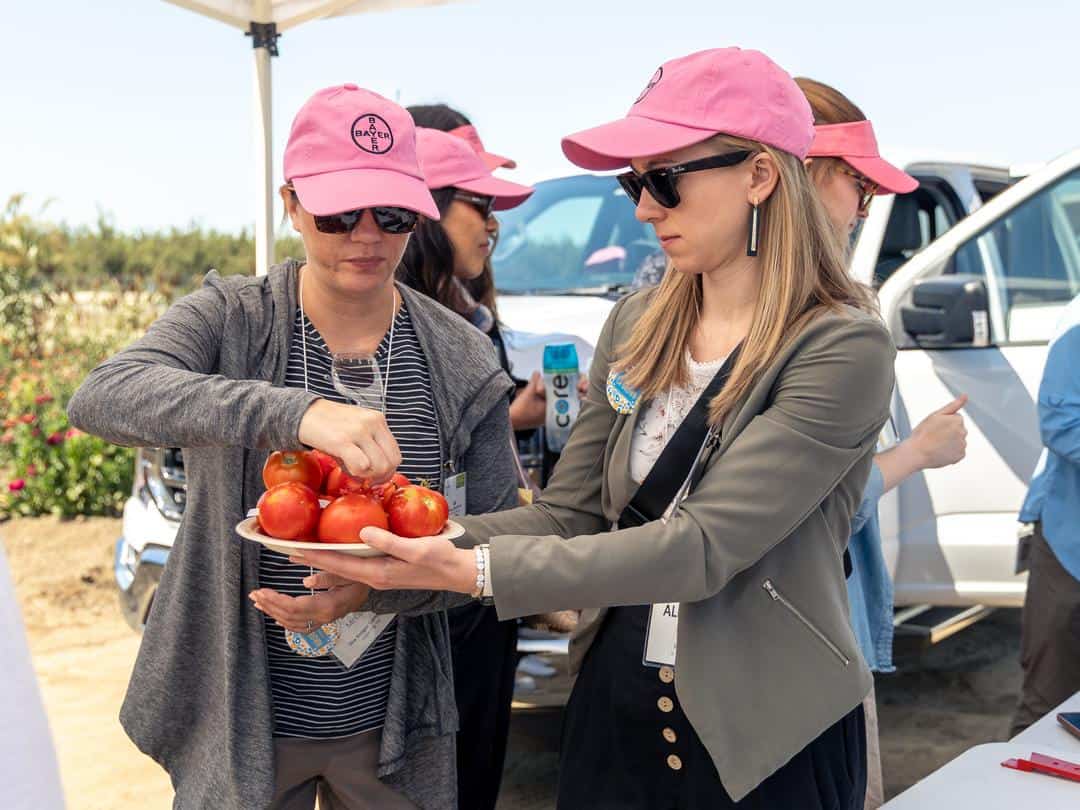
Taste and quality are both incredibly important. Bayer conducts internal tastes tests. Then they gather external feedback from potential consumers and even chefs! Before a new product is released, it must also undergo large-scale market trials to confirm demand.
Because farmers are careful to cultivate food that consumers want to eat, this final step is crucial to farmer buy-in as it ensures growers that consumers will want the new varieties.
Chad adds, “It is sometimes difficult to get farmers to adopt new varieties, and for good reason. Farmers create relationships with a given variety and adapt their processes to it – it’s difficult to change these overnight. Ag companies must show the value of any changes in practice, including the change in variety. In other cases, like the introduction of a new disease to a region, farmers are knocking on our doors for a new version of their favorite variety with resistance to the new disease.”
Working together towards a more sustainable future
California is a hub for innovation well beyond the confines of the Silicon Valley. Our farmers are uniquely positioned in proximity to rapidly emerging technology – and through partnerships with companies like Bayer Vegetable Seed, they’re using these advancements to create a more sustainable future. Chad states, “Every one of our breeding targets can be matched with a sustainability goal. Increased disease resistance will decrease pesticide applications and tractor passes. Increased fruit quality will decrease the amount of fruit left in the field and thereby decreases food waste. We breed for shelf life, which also decreases food waste. The list can go on and on.”
So, when you discover a new variety of your favorite vegetable at your local grocer, don’t hesitate to give it a try. Change is a good thing – and by embracing new, more sustainable specialty crops, you just might be doing your part to save the world.
Want to learn more about how science and agriculture go hand in hand? Read this next…
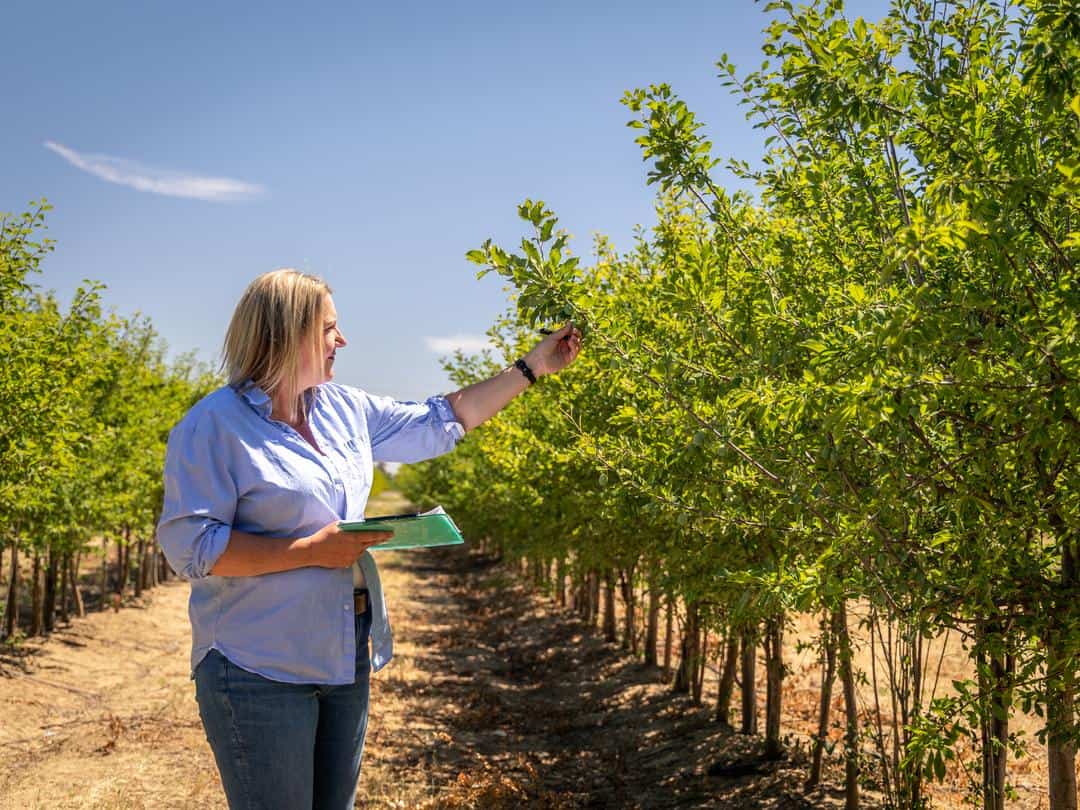
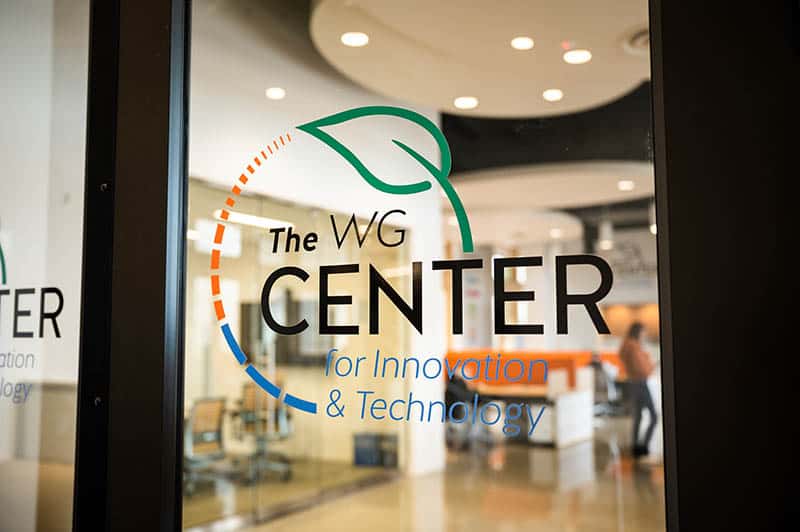
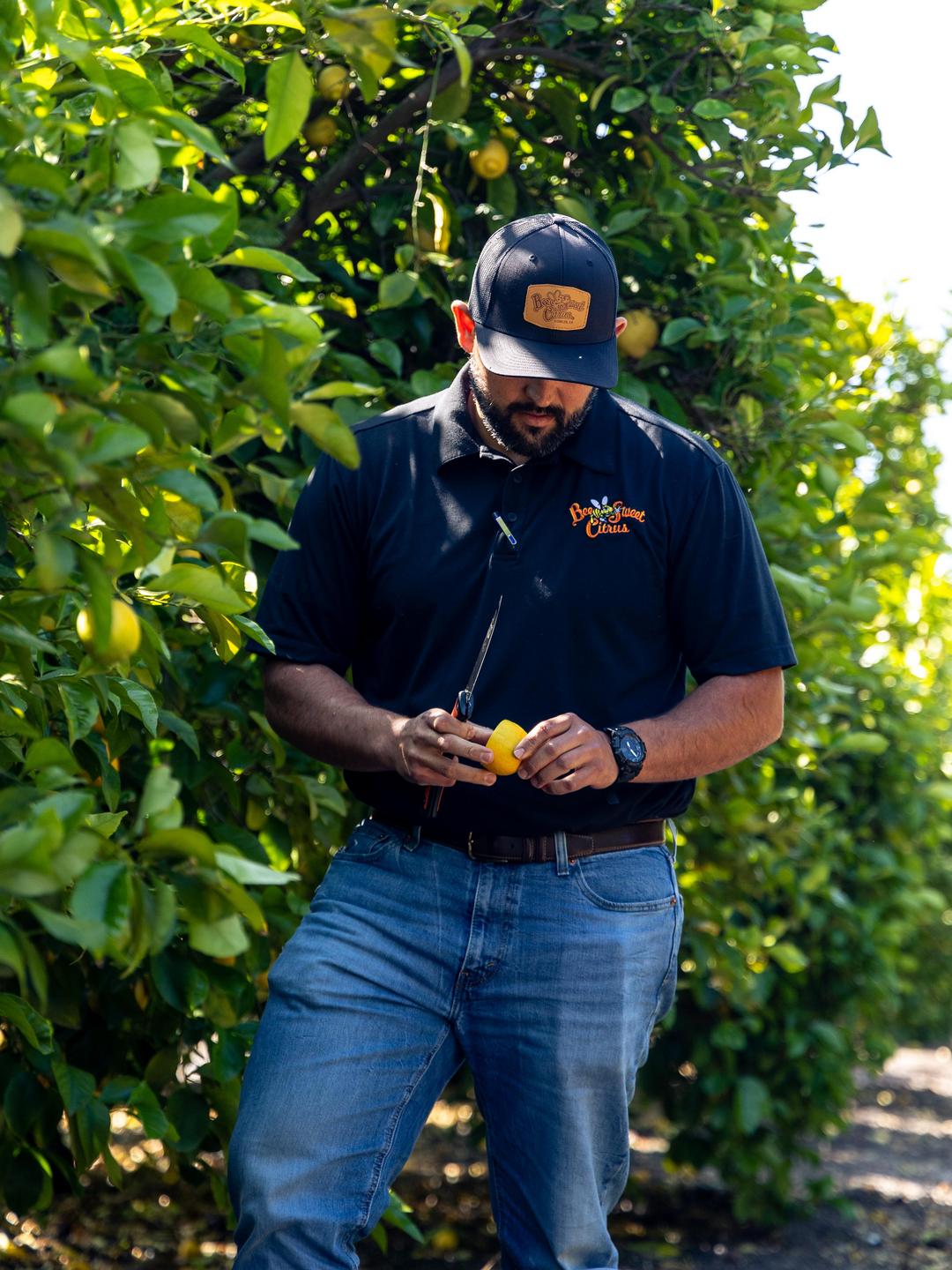
Article and photography by Hilary Rance.

